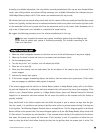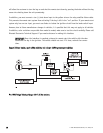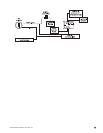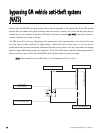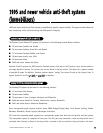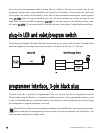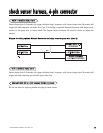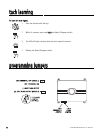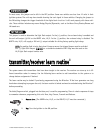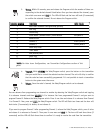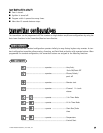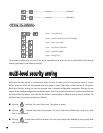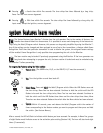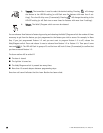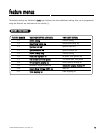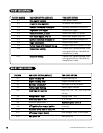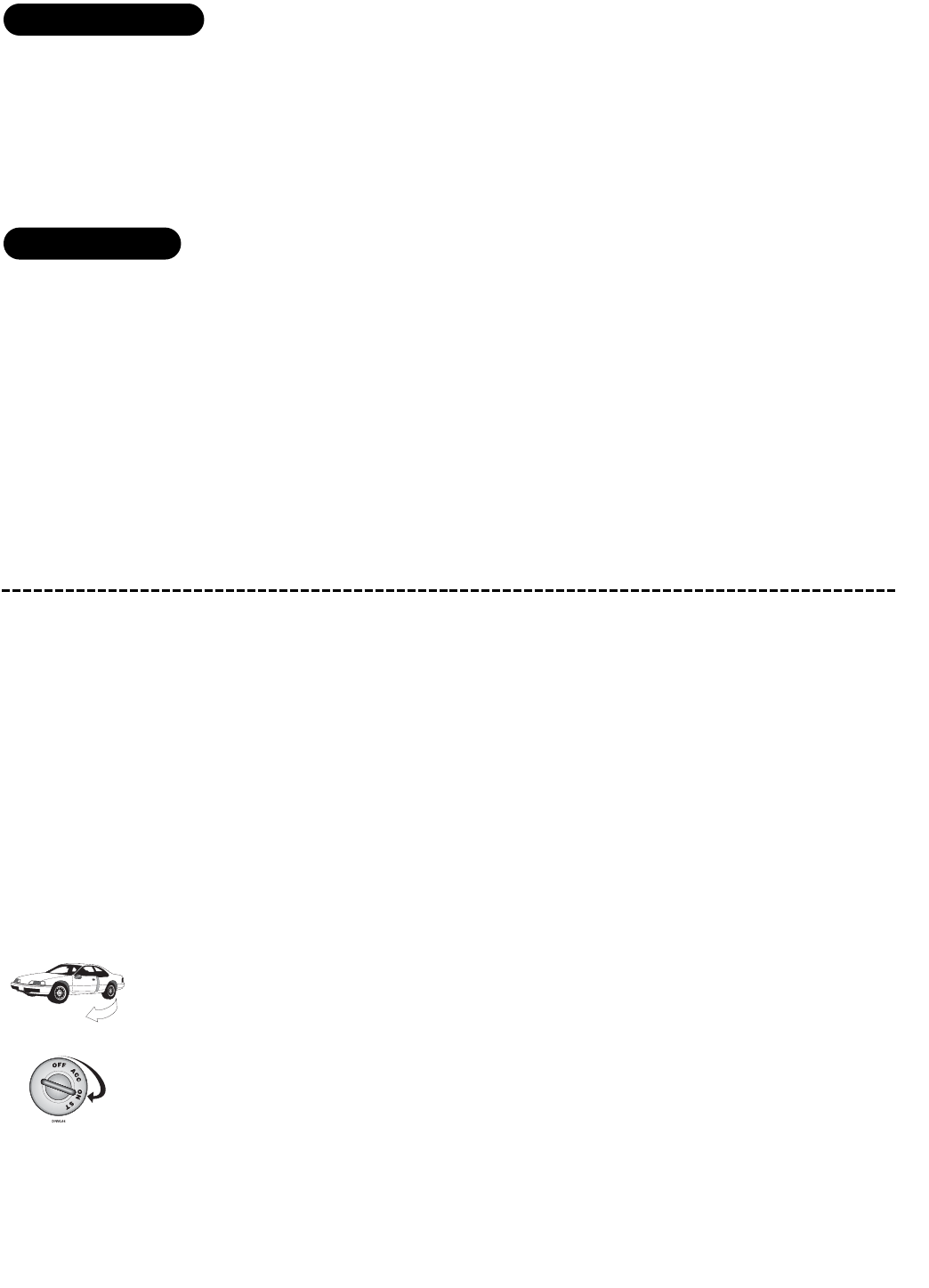
© 2005 Directed Electronics, Inc. Vista, CA
3355
In most cases, this jumper can be left in the OFF position. Some new vehicles use less than 12 volts in their
ignition systems. The unit may have trouble learning the tach signal in these vehicles. Changing the jumper to
the ON setting changes the trigger threshold of the digital tach circuit so it will work properly with these vehi-
cles. These vehicles include many newer Dodge/Chrysler/Plymouths, such as the Neon Cirrus/Stratus/Breeze and
LH-based cars.
This jumper is used to determine the light flash output. In the (+) position, the on-board relay is enabled and
the unit will output (+)12V on the WHITE wire, H1/2. In the (-) position, the on-board relay is disabled. The
WHITE wire, H1/2, will supply a 200 mA (-) output suitable for driving factory parking light relays.
K
NNOOTTEE::
For parking light circuits that draw 10 amps or more, the internal jumper must be switched
to a (-) light flash output.
PP//NN 88661177
or a standard automotive SPDT relay must be used on the
H1/2 light flash output harness wire.
ttrraannssmmiitttteerr//rreecceeiivveerr lleeaarrnn rroouuttiinnee
™™
The system comes with transmitters that have been taught to the receiver. The receiver can store up to 4 dif-
ferent transmitter codes in memory. Use the following learn routine to add transmitters to the system or to
change button assignments if desired.
The learn routine may be locked if previously programmed using the Bitwriter. If the horn generates one long
honk when attempting to program the unit, the learn routine is locked and must be unlocked using the Bitwriter™
before proceeding.
The Valet/Program switch, plugged into the blue port, is used for programming. There is a basic sequence of steps
to remember whenever programming this unit: Door, Key, Choose, Transmit and Release.
1.
OOppeenn aa ddoooorr..
(The GREEN wire, H1/5, or the VIOLET, H1/7 must be connected.)
2.
KKeeyy..
Turn the ignition to the ON position.
lliigghhtt ffllaasshh ((++))//((--))
ttaacchh tthhrreesshhoolldd oonn//ooffff



